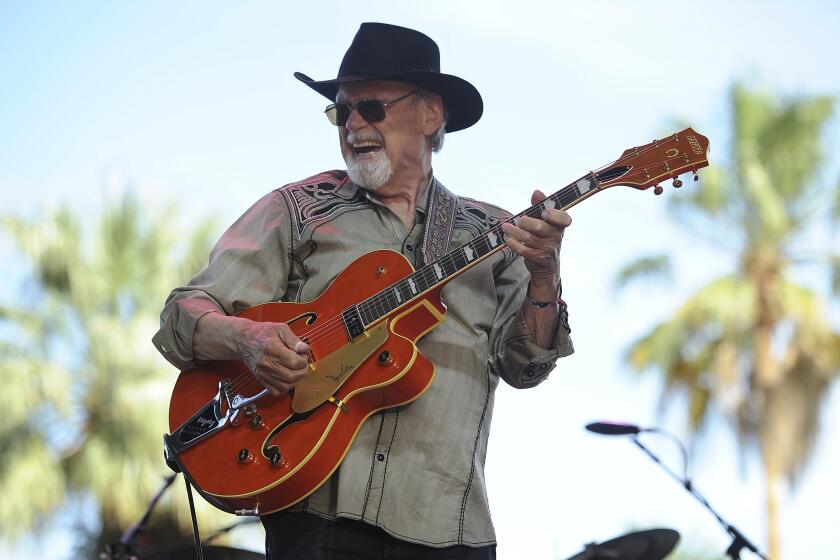Musicians plead for increased funding for National Endowment for the Arts
A woman held a BlackBerry over the crowd surrounding Linda Ronstadt to get a shot of the onetime queen of country rock. Someone else thrust an album insert and pen at Josh Groban. “Just one more photo, please,” followed jazz musician Wynton Marsalis out of the room.
The three musicians were among a group who appeared Tuesday on Capitol Hill to speak in favor of increasing funding for the National Endowment for the Arts to $200 million in the 2010 budget. In an effort to demonstrate the importance of the arts to the community -- particularly for young people -- each talked about how music had shaped his or her life.
“I don’t remember when there wasn’t music going on in some form” at her childhood home in Tucson, Ronstadt told the House Appropriations Subcommittee on Interior, Environment and Related Agencies. She recalled her father whistling while he puttered with things needing repair, her brother stumbling over double bass strings, her mother ripping ragtime tunes on the family piano.
But people don’t do that anymore, she said.
“Increasingly, people’s experience with music is passive,” Ronstadt said. “We need to teach our children to sing their own songs and play their own instruments, not just listen to their iPods.”
Concerned about possible cuts in a tough budget year, the stars told their stories in hopes of convincing politicians of the importance of maintaining funding for the arts, which they say is instrumental in helping youths succeed.
Involvement in the arts has been shown to improve overall performance in school. High school students who take four years of art and music scored 85 points higher on their SAT exams last year than their peers who did not, according to data from the College Board.
“Including the arts in academics was so profound in getting me to focus on the other elements of my education,” Groban, a former student at Los Angeles County High School for the Arts, said in between handshakes and photographs.
Groban also grew up in an artsy family -- his mother taught high school art, and his father played a mean jazz trumpet. He had the attention of a Grammy-winning producer by age 17.
“It pains me to think of how many thousands of millions of kids who have the energy, have the talent, have the smarts, have the path that they don’t yet know is in front of them and don’t ever have that push,” Groban said.
Luis Cancel was one of those kids. He grew up in the South Bronx and got caught up in gangs at a young age. Then in seventh grade an art teacher taught him about painting and drawing.
“She helped me translate the three-dimensional world onto a two-dimensional plane,” Cancel, now the director of cultural affairs for the San Francisco Arts Commission, said at a breakfast that preceded the hearing. “Really helped to redirect my energy.”
One of the greatest dangers the U.S. faces is producing a generation lost on the meaning of music, Marsalis said. To demonstrate the role Americans must all play in educating youth, he told a story about jamming with older jazz players.
One of them commented on how loudly Marsalis’ group of twentysomethings played. “So we started thinking, ‘Why are we playing so loud?’ ” he said, seeming to still be pondering the question. “Why are we playing so loud?” No one had ever taught them any differently.
--
More to Read
The biggest entertainment stories
Get our big stories about Hollywood, film, television, music, arts, culture and more right in your inbox as soon as they publish.
You may occasionally receive promotional content from the Los Angeles Times.






